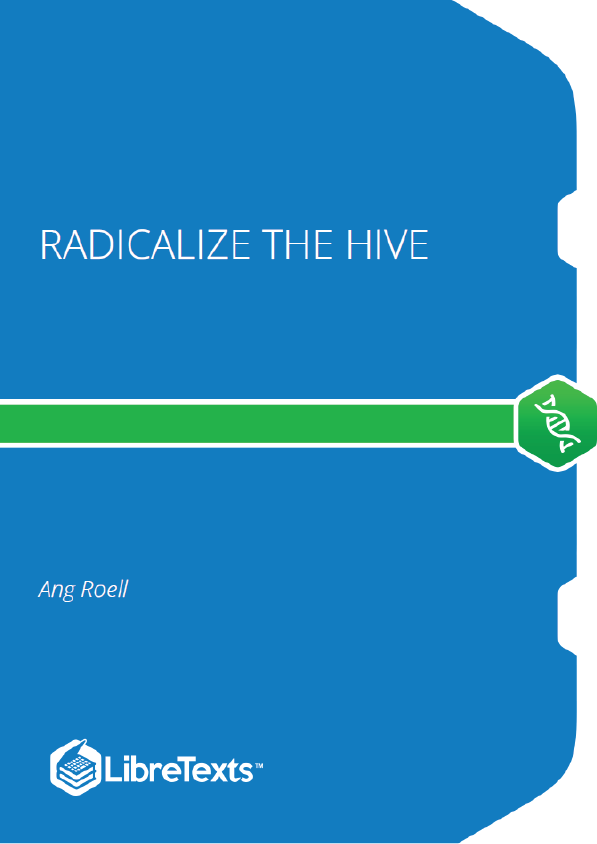The Manifesto section of Radicalize the Hive provides the reader with context about my perspective on beekeeping in the 21st Century. It examines where we are and how we got here by taking a look at the historical significance of honey bees in North America. This section is based on my own experience as a radical and queer beekeeper over the last decade.
Beneath ideas of “industriousness” and “productivity,” honey bees are translators of sweetness and light. They are facilitators of pollination – nature’s fluffers humming between stamens and pistols, full up with pleasure and drunk on sunshine.
Right now the honey bee/human relationship is transactional. We want to “save the bees.” If we want a reciprocal relationship with these creatures, we have to ask what we LEARN from the bees to begin to shape change so we can be more responsive to each other and our ecological allies.
To move back into a more symbiotic relationship with the honey bee, we have to examine how entangled this sweet bee is with the historical relationship between colonization and industrial agriculture. We have to acknowledge that relationship. We also have to look closer at the honey bees’ system of cooperation and ask what we can learn from honey bees as a “social super-organism.”
We can take lessons from inside the hive to begin the process of building new resilient worlds together, worlds that honor natural rhythms and lessons.
In this section I examine lessons from the hive:
- The root cause of the plight of the honey bee
- How honey bees effectively collaborate
- What humans can learn from honey bees to be more effective collaborators:
a. Review lessons that can help us shape change in OUR own exploitative industrial culture so we can be more responsive to each other and our ecological allies
- i. Setting terms, sharing power, building collective understanding, working towards building consensus while being compassionate and forgiving ourselves
- ii. Sharing purpose, AND sharing joy
How we can apply this in our work to build networks of collective care and shared power. To me true collaboration is sharing power with each other rather than holding and manipulating power over one another, or over another species. This is how I have shaped my own iterative practice and my work, and in this section I share that with you.
The Story of this Book
The story of this book started in the spring of 2017 when, in the midst of a major life upheaval, I fled to Vermont to deepen my beekeeping practice with Kirk Webster. Inspired by my time at Kirk’s, I told a friend, “I’m going to write a zine about bees.” At the time, this “zine” was nothing more than a discombobulated collection of sketches and tools of the craft that I had gleaned from mentors and modified through my own experience.
After I spoke the words, I started thinking of the pollinator protection movements and where we are. I wondered who has the microphone in this movement? Who needs it? Who has access to bees and who doesn’t? I reflected on the story of how we got here and what momentum we need to move in a new direction.











